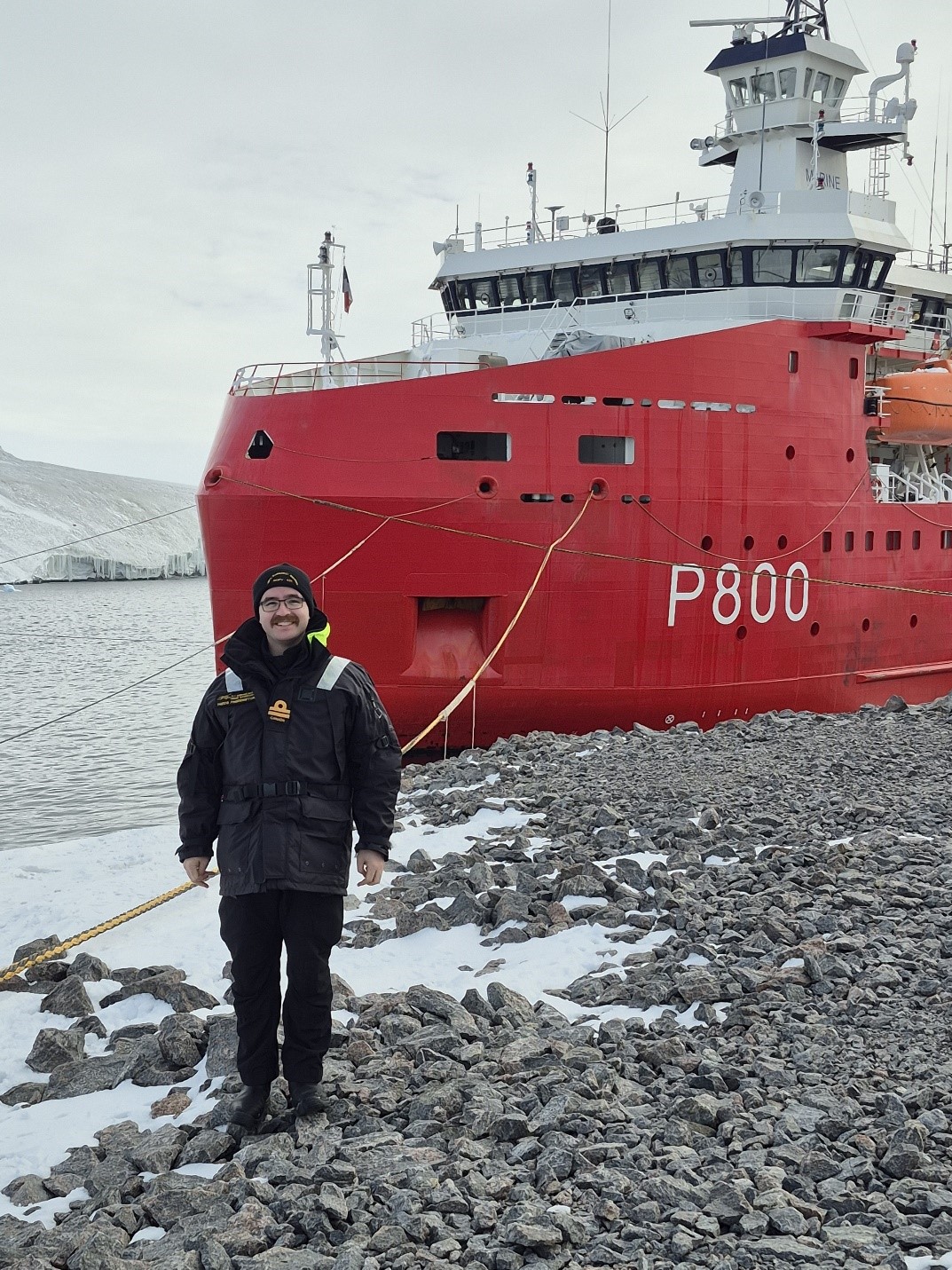For Lieutenant (N) Cameron Moors, Navigating Officer aboard HMCS Frederick Rolette, a recent exchange with the French Navy offered a rare opportunity to gain hands-on polar operations experience while strengthening international naval cooperation.
Originally from Halifax, Moors has served in the Royal Canadian Navy (RCN) for 10 years. With a background in polar navigation and international deployments, he was selected for this exchange to build firsthand knowledge of French operations in ice-covered waters.
In March 2025, Moors embarked on a two-week voyage aboard L’Astrolabe, a French Navy ship operated on behalf of the French Southern and Antarctic Lands Administration (TAAF). The ship was completing its final logistic support mission of the season to the French Antarctic research station at Dumont d’Urville (DDU). Departing from Hobart, Australia, the crew crossed the “Roaring Forties”, a notoriously rough stretch of the Southern Ocean—before reaching the ice-covered coast of Antarctica.
During the mission, Lt(N) Moors served as a trainee Bridge Watchkeeper, joining a small French Navy crew that worked alongside embarked researchers and station support personnel. The ship’s responsibilities included delivering food, spare parts and equipment to the station via helicopter while patrolling near the coast. When poor weather made the station’s jetty inaccessible, the ship continued further south, fulfilling its motto Toujours Plus Sud (“Always Further South”) by reaching its southernmost point to date.
Throughout the exchange, Moors was impressed by the professionalism and hospitality of the French Navy crew.
“They welcomed me as one of their own and included me in everything from cargo handling to daily bridge operations, to their crossing the line ceremony, where I was dressed up as a very lost polar bear.”
He also noted several operational takeaways, including the French Navy’s practice of compiling satellite imagery, photographs and videos from each voyage to inform future navigation and build long-term polar knowledge.
“The French Navy does after action reports after every trip to DDU, so they have comprehensive records of how the ship got through the ice and the conditions they’ve faced before,” said Moors.
“Both reading their doctrine on ice operations and these AARs will provide the RCN some insight into modern icebreaking operations with a comparable ship.”
L’Astrolabe is equipped for heavy polar resupply, with a cargo hold capable of carrying up to 1,200 tonnes of equipment. This includes two helicopters, more than 10 sea containers, and various vehicles to support the station.
The vessel typically sails with a core crew of 22 French Navy personnel, which allows space to embark scientists from the Paul-Émile Victor Polar Institute along with other support staff. Its dual-crew rotation system enables near-continuous operations. During the Antarctic off-season, the ship conducts fisheries and sovereignty patrols in the Indian Ocean near La Réunion and other French territories.
Moors said one of the most significant challenges was navigating the language barrier in a technical environment.
“I’d say the biggest difficulty is re-learning all the navy-specific terminology in French,” he noted. “There were a lot of technical terms that I knew but didn’t know how to translate into my second language. The crew helped by either translating it themselves or using charades to bridge the gap.”
As the RCN expands its polar presence, exchanges like this one will continue to enhance operational readiness, build expertise, and foster the close international partnerships that define Canada’s role on the global stage.

